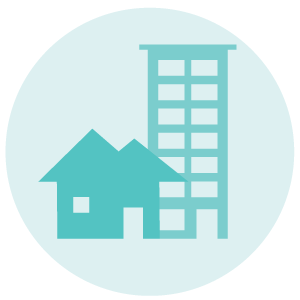For the past two years, the Canadian Observatory on Homelessness, in partnership with the Canadian Alliance to End Homelessness, has prepared an analysis of the homelessness landscape in this country. Each report looked at the number of people experiencing homelessness, the current state of affairs in terms of responses, the cost of homelessness and suggested ways to end the homelessness crisis.
In particular, the SOHC 2014 examines work by economists and proposes a clear plan to end homelessness that would cost Canadians very little (approximately $2 a week) but would resolve the crisis. The six recommendations are taken directly from the SOHC 2014, although the descriptions have been edited to provide clarity. These recommendations are:
 1. Develop a new federal, provincial and territorial affordable housing framework agreement.
1. Develop a new federal, provincial and territorial affordable housing framework agreement.
Canada will have great difficulty ending homelessness without developing a housing strategy; it is the only G7 country without one. After Canada withdrew significantly from investment in affordable housing in the late 1980s and cancelled its national housing policy in 1993 we have seen a huge increase in homelessness. Downloading social housing to the provinces and territories (and sometimes onto municipalities) has meant a dearth of new building, crumbling existing social housing stock and people struggling to make ends meet.
We recommend that the Government of Canada develop a federal, provincial and territorial affordable housing framework, to include:
- Setting an objective to end homelessness and establishing milestones, outcomes and performance expectations.
- Annual Point-in-Time counts using a consistent national methodology.
- A National Homelessness Management Information System for data collection and analysis.
- Targeted strategies and plans for specific groups such as youth, women experiencing violence and Aboriginal Peoples.
 2. Target investments towards chronically and episodically homeless people.
2. Target investments towards chronically and episodically homeless people.
There are different types and experiences of homelessness. For most people homelessness is a very short-term experience, but for others it is ongoing and even chronic. Those people who experience homelessness chronically cost society a disproportionate amount of money. By focusing solutions on this group we realize savings the fastest. It is critical, however, that as those numbers begin to decline the money is reinvested in addressing other needs. Within this recommendation we call for:
- A 10-year renewal to the Homelessness Partnering Strategy (HPS), a federal program that funds 61 communities across Canada addressing homelessness.
- A 50% increase in the first five years to the $119 million currently allocated on an annual basis to HPS.
RECOMMENDATION COST: $2.071 billion over ten years to reduce homelessness.
 3. Invest directly in affordable housing programs.
3. Invest directly in affordable housing programs.
620,000 units of social housing (including co-ops) were built in the 1970s and 1980s across Canada. The 25-40 year mortgages attached to these capital costs have been expiring and the savings realized by mortgage expiration has not been reinvested in housing. Ongoing support is needed to address maintenance and repair costs, rising utility costs and to support subsidies of rent for low-income tenants. In 2014 this line item cost the federal government $1.6 billion. That drops to $1.2 billion in 2020, $604 million in 2025 and $35 million in 2035.
By reinvesting this money in housing the government can rebuild and repair housing stock – Toronto alone has a $2.6 billion dollar estimate for repairs over the next ten years. Funds can also be devoted to subsidies targeting specific low-income tenants, and to support services.
RECOMMENDATION COST: $13.84 billion over ten years.
We also suggest renewing funding for the Investment in Affordable Housing Initiative (IAH). It is obvious that the private sector is not building sufficient affordable housing to meet demand. The IAH is a cost/shared funding program for affordable housing between the federal and provincial/territorial governments that has led to a the creation of tens of thousands of new affordable rental units across Canada. We recommend extending this program for ten years, to create 4,000 new affordable housing units annually, with a priority on housing chronic and episodically homeless people.
COST: $6.569 billion over ten years.
 4. Implement a housing benefit – a new program to assist those who face a severe affordability problem in their current accommodation.
4. Implement a housing benefit – a new program to assist those who face a severe affordability problem in their current accommodation.
The lack of affordable housing is a primary reason why many Canadians are precariously housed. We currently have programs such as the Canada Child Tax Benefit and GST/HST payments that support people in recovering costs. We propose a very similar housing benefit that would apply to people with low incomes and high housing costs. This benefit would be a cash payment made directly to renters or homeowners and could reduce the number of people who are not currently homeless but face extreme or core housing need. It could also make housing more affordable for people who are currently homeless who may be eligible for the housing benefit. This benefit will dramatically reduce the number of households living with an extreme affordability problem and those experiencing core housing need.
COST: $12.253 billion over ten years.
 5. Create an affordable housing tax credit.
5. Create an affordable housing tax credit.
There is a lack of housing stock development being undertaken by the private sector. We call for a housing tax credit that is paid to developers (both market and non-profit) who build mixed-income affordable housing. Affordable housing would be offered at less than 80% of market rent and occupied by tenants whose move-in income is less than 125% of CMHC’s Household Income Limit. This recommendation is based on the Low Income Housing Tax Credit (LIHTC) in the U.S., which has successfully funded supportive housing and thousands of units of affordable for-profit housing in the past 30 years. We estimate that our proposal could generate 4,800 units of housing annually and 48,000 over ten years.
RECOMMENDATION COST: $6 billion over ten years.
 6. Review and expand investment in Aboriginal housing both on and off reserve.
6. Review and expand investment in Aboriginal housing both on and off reserve.
Aboriginal Peoples are disproportionately represented in the homeless population across Canada. Additionally, on-reserve housing is declining in quality, safety and adequacy at the same time that the population is growing dramatically. Our recommendation calls for an up-to-date audit of on-reserve housing conducted in cooperation with Aboriginal communities across Canada. It would assess the state of current on-reserve housing as well as determine the need for off-reserve Aboriginal housing. The federal government currently invests $300 million annually in Aboriginal housing and we suggest that this amount continue until the audit is complete.
RECOMMENDATION COSTS: $300 million in year one and remaining costs to be determined after audit of Aboriginal housing conditions.






